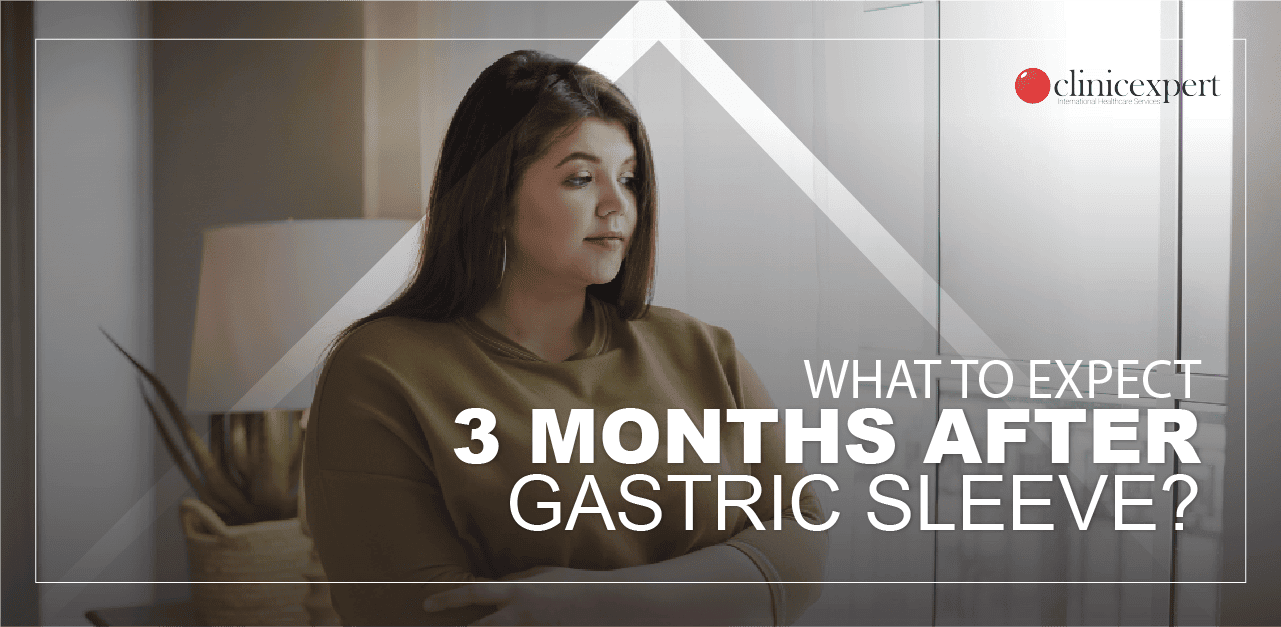The First 3 Months after Gastric Sleeve Surgery
If you’re considering gastric sleeve (sleeve gastrectomy) surgery, it’s important to understand the essence of it. You should know about the lifestyle changes and adjustments that await you after the procedure. Being aware of what to expect before and after the surgery can help you achieve a successful recovery and effective weight loss. The gastric sleeve before and after 3 months can provide valuable insights into the results and changes you can anticipate during this crucial period. By familiarizing yourself with the potential side effects and necessary modifications in your daily routine, you can optimize your healing process and work towards your weight loss goals more efficiently.
What to Expect Immediately After Gastric Sleeve Surgery
Gastric sleeve surgery is a highly effective procedure that involves the removal of a significant portion of the stomach, resulting in a reduced capacity for food intake and facilitating weight loss. This transformative approach not only helps individuals lose weight but also significantly improves their quality of life, making it easier for them to feel great about themselves. However, it’s important to understand that the success of this surgery relies heavily on making necessary lifestyle modifications and adjustments. Especially in the initial days following gastric sleeve surgery, there are specific steps you can take to ensure a smooth recovery and maintain progress towards your weight loss goals, which in turn helps you lose weight, feel great, and enhance your quality of life.
The First Days after Gastric Sleeve
Typically, you can expect to spend a night or up to four days at the surgical center, depending on the type of surgery you undergo. Once you are deemed physically capable and show no signs of complications or infection, you will be discharged to continue your recovery at home. During the first week, managing pain and engaging in light activity are crucial factors to focus on. Follow the pain control plan prescribed by your doctor diligently, and be consistent with any medications you have been prescribed. If you experience any worsening or new pain, it’s important to promptly communicate with your surgical care team.
While it may feel uncomfortable at first, engaging in light activity can actually aid in your recovery process. Activities such as walking and gentle stretching can improve blood flow. By doing so, you can reduce the risk of blood clots, and promote healing at the site of surgery. Aim to incorporate 30-45 minutes of light activity into your daily routine. You will see that it can significantly enhance your healing process. It will also minimize potential post-operative complications.
Pain Management after Gastric Sleeve
By adhering to your pain management plan, staying active within your comfort level, and closely monitoring any changes in your condition, you can ensure a successful recovery during the initial phase after gastric sleeve surgery. Remember that this procedure is just one part of your weight loss journey. It is through consistent commitment to lifestyle modifications that you can achieve long-term success in maintaining a healthy weight. Bariatric surgeons emphasize that the key to maximizing the benefits of gastric sleeve surgery lies in the patient’s dedication to following post-operative guidelines and adopting a healthier lifestyle, which together pave the way for sustained weight management and improved overall well-being.
Gastric Sleeve Results: Before and After 3 Months
The outcomes that patients experience in the first 3 months following gastric sleeve surgery can vary from person to person, as each individual’s case is unique. While your life will certainly undergo changes after the procedure, the specific nature of these changes is subjective and dependent on various factors.
Average Weight Loss 3 Months after Gastric Sleeve

Within a year, gastric sleeve patients typically lose an average of 70-80% of their excess weight. This rate is equivalent to approximately 2 kg per week. Some individuals have even achieved up to 75% of their excess weight loss within two years. It’s important to note that following the surgery, adherence to a post-operative diet is crucial. This diet gradually transitions from liquid to solid foods. Post-op diet contributes significantly to weight loss during the first three months following the surgery.
Regarding the resolution of obesity-related diseases, it generally occurs within one to two years after weight loss surgery. Therefore, it is unlikely to observe substantial improvements in diabetes or hypertension within just 3 months following the procedure. However, for patients with type II diabetes, gastric sleeve surgery can lead to a reduction in their reliance on medication. Similarly, patients with hypertension can also benefit from gastric sleeve surgery. An average of 55-60% of patients discontinued their hypertension medication after one year following the procedure.
Overall, the first 3 months after gastric sleeve surgery are crucial for significant weight loss. The first 3 months can provide a foundation for long-term success in managing obesity-related diseases. Do you have further questions about post-bariatric surgery process? You can contact us via WhatsApp, or e-mail.



